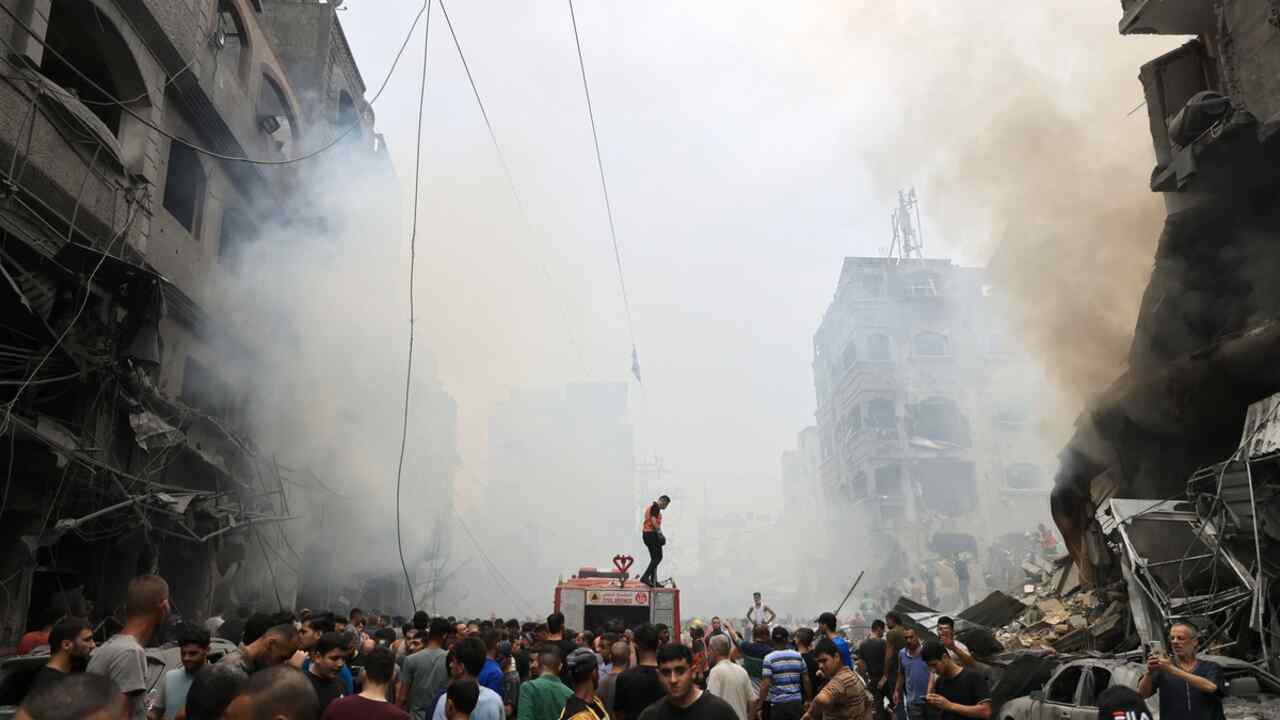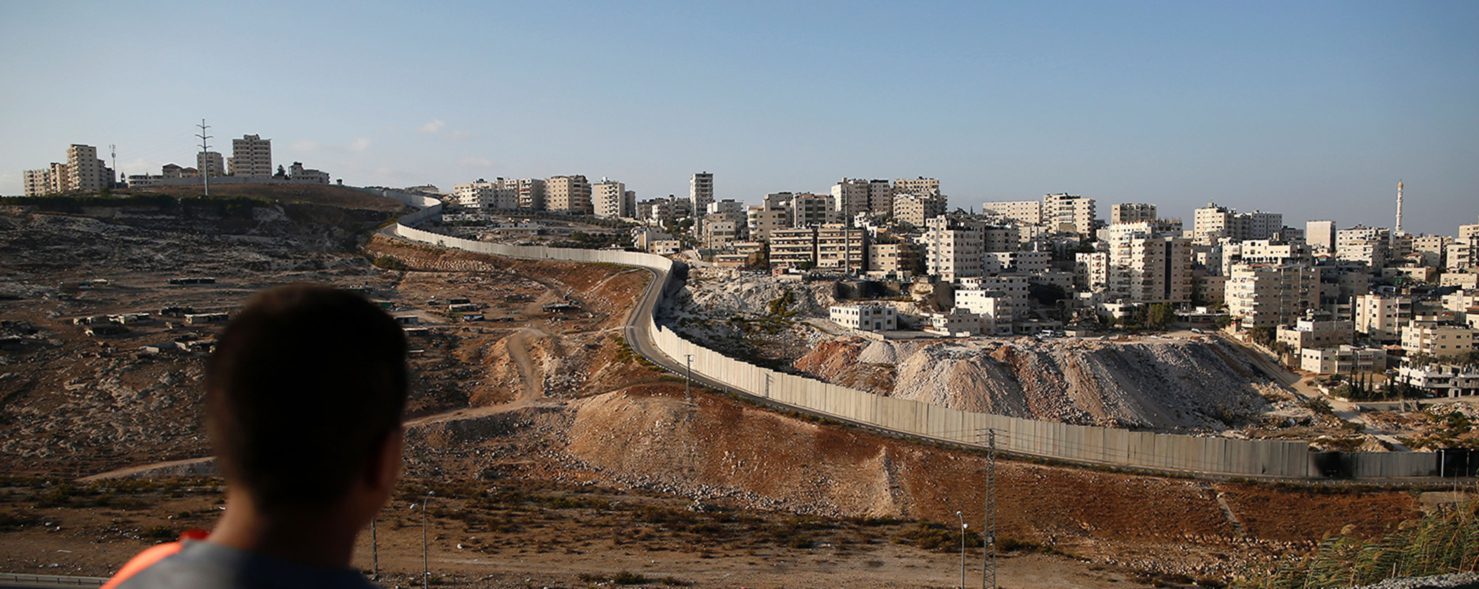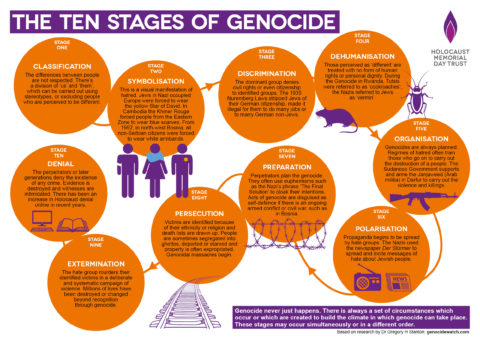Yes, What's Happening In Gaza Is Genocide

So, U.S. President Joe Biden said something shocking a while back.
In the face of the ICC prosecutor requesting arrest warrants for Netanyahu and the leaders of Hamas, he backtracked on his vaguely more rigid stance against Israel's offences against the Palestinian people.
He called the warrants a false equivalence, acted as though the Israel-Gaza conflict started on October 7th out of the blue, and sternly rejected the idea that the situation constitutes genocide.
I know a thing or two about genocide, as it happens. History is kind of my thing. So I figured we'd do a little bit of digging into this topic today, just for...I don't want to say 'fun,' but just to prove a point.
Because people have one hell of a double standard when it comes to Israel.
Genocide is often understood to mean mass murder in general, but that's not actually the case. There is a very specific set of standards used to define genocide, as laid out by the United Nations.
There are five acts laid out within the CPPCG that meet the definition of genocide under international law. Any one of these acts on its own can constitute genocide as long as they are targeted toward a particular national, ethnic, religious or racial group.
They are:
(a) Killing members of the group;
(b) Causing serious bodily or mental harm to members of the group;
(c) Deliberately inflicting on the group conditions of life calculated to bring about its physical destruction in whole or in part;
(d) Imposing measures intended to prevent births within the group;
(e) Forcibly transferring children of the group to another group.
There is also the question of ethnic cleansing to consider. Ethnic cleansing is not currently recognized as a legal definition separate from genocide and carries no legal charges.
However, we can still consider it to be supporting evidence for genocide.
Ethnic cleansing is the practice of erasure. The idea is to remove all traces of a particular ethnic group from the territory you control. This can include mass murder or deportation, but it can also be as simple as removing cultural references to that group.
One sign is to designate areas in a city as 'no-go' zones where that particular ethnic group is barred from entry. Another is to rename cities, streets, and local landmarks to remove cultural and linguistic references to the targeted ethnic group.
In my home province of New Brunswick, for example, there is the St. John River. The local Indigenous peoples initially named it the Wolastoq, but it was changed to reflect the preferences of the colonial settlers. Many place names were changed to try to erase the language of the locals when settlers moved in.
There is a push now to officially change the name back as a gesture of respect and an acknowledgement of the ethnic cleansing and genocide that was perpetrated against the First Nations.
Outright destroying important cultural sites can be a giant neon sign for ethnic cleansing, as well. There's a reason that cemeteries are specifically protected under international law.
Beyond murder and cultural erasure, ethnic cleansing can involve generally making life hell for any members of the targeted group who live within the region where it's taking place.
To quote from the United Nations Office on Genocide Prevention:
The Commission of Experts also stated that the coercive practices used to remove the civilian population can include: murder, torture, arbitrary arrest and detention, extrajudicial executions, rape and sexual assaults, severe physical injury to civilians, confinement of civilian population in ghetto areas, forcible removal, displacement and deportation of civilian population, deliberate military attacks or threats of attacks on civilians and civilian areas, use of civilians as human shields, destruction of property, robbery of personal property, attacks on hospitals, medical personnel, and locations with the Red Cross/Red Crescent emblem, among others.
With that out of the way, let's have a look at what's going on in Gaza and the West Bank.
It's not pretty.
First things first, I'll reiterate my position to make sure there is no confusion.
I wholeheartedly condemn Hamas for their actions on October 7th. The murder and abuse of civilians is outrageous and inexcusable, no matter who is responsible. They should be held fully accountable for it, and the hostages should be released.
With that said, I'm going to emphasize one point.
The murder and abuse of civilians is inexcusable, no matter who is responsible.
The government of Israel does not get a pass just because Hamas has also done wrong. Israel has done more than its fair share of murder and abuse both since October 7th and in the decades leading up to it.
Contrary to what the media seems to want to pretend, this conflict did not come out of nowhere.
Israel was officially established as a nation on May 14th, 1948. Prior to that date, the British had been in control of Palestine following the collapse of the Ottoman Empire during World War 1.
The 1917 Balfour Declaration had made it clear that the British intended to assist in the establishment of a Jewish state in Palestine, and already, the local population was enraged.
The Palestinian people were already living there, after all. They weren't keen on being forced to live as second-class citizens on the land where their families had always been.
Most indigenous populations around the globe have expressed similar feelings about colonialism.
They weren't exactly pleased that the United Nations and the British had decided to divide up their land and give it away to establish a new country without their agreement.

As you might expect, the locals reacted pretty violently to the plan. This launched the ongoing conflict in the region between Jewish immigrants and the local Palestinian people.
Then there was the Naksa, the mass exodus of around 300,000 Palestinian refugees who had to flee their historical lands in the aftermath of the Six-Day War. Israel went ahead and claimed a huge chunk of territory, exerting control over the area we now recognize as the whole nation of Israel.
They also assumed control over the West Bank and Gaza Strip.
So, what's life like for the Palestinian people under Israeli control? Well, after October 7th, it's obviously pretty damned grim. Take a look at this International Rescue Committee report to find out how bad things are.
And please, I beg you to actually read it. Don't scroll past it. Take the time.

But prior to October 7th, the conditions in Gaza and the West Bank were already pretty bad.

In 2020, the median age in Gaza was 18. In the West Bank, the median age was slightly higher- 21.9 years on average.
The median age in Canada is 40.6 years, just to give you an idea of how ridiculously low those numbers are.
What this means is that the majority of the Palestinian people in Gaza and the West Bank are dying young, and a disproportionately large chunk of the population are minors.
Gaza has been under blockade for about 17 years now. Israel controls basically everything that gets in and out of the country. That includes food, clean water, medicine and electricity.
The hospital system is overloaded and severely under-supplied as a result. With frequent bombings and violence impacting the civilians of Gaza, as well as frequent outbreaks of illness and malnutrition due to the poor living conditions, you can see why so many people are dying young.
We also have to take into consideration the mental health of the people living there. PTSD is incredibly common in the Gaza Strip, and damn near everybody is contending with some form of trauma after decades of war and suffering.
The suicide rate in Gaza is very high.

Then there's the occupation, the illegal Israeli settlements in Gaza and the West Bank.
Palestinian people are being evicted from their homes without warning to make way for Israeli immigrants to simply move in and assume control of their land.

So that's just some of what's been going on over the past few decades, even before the mass murder and bombings that have been going on since October 7th.
Remember the United Nations' definition of genocide? Let's take another look.
The definition of genocide:
(a) Killing members of the group;
(b) Causing serious bodily or mental harm to members of the group;
(c) Deliberately inflicting on the group conditions of life calculated to bring about its physical destruction in whole or in part;
(d) Imposing measures intended to prevent births within the group;
(e) Forcibly transferring children of the group to another group.
So, we have mass murder. We have serious bodily or mental harm. We have deliberately inflicting on the group conditions of life calculated to bring about its physical destruction in whole or in part.
And lest you think that the word 'deliberate' is a bit much, let me show you some quotes from Yoav Gallant, Israel's defence minister:
"I have ordered a complete siege on the Gaza Strip. There will be no electricity, no food, no fuel, everything is closed. "
"We are fighting human animals and we are acting accordingly."
It's worth noting that both Yoav Gallant and Prime Minister Netanyahu have been called out for perpetrating genocide, to the point where a prosecutor has asked the ICC to issue an arrest warrant for both of them.
That's what prompted Biden's rebuke of the word 'genocide' in the first place.
The facts don't agree with President Biden on this point, however. It's very clear that a genocide is taking place, and this escalation of violence is only that: an escalation.
Remember the description of ethnic cleansing, as well:
The Commission of Experts also stated that the coercive practices used to remove the civilian population can include: murder, torture, arbitrary arrest and detention, extrajudicial executions, rape and sexual assaults, severe physical injury to civilians, confinement of civilian population in ghetto areas, forcible removal, displacement and deportation of civilian population, deliberate military attacks or threats of attacks on civilians and civilian areas, use of civilians as human shields, destruction of property, robbery of personal property, attacks on hospitals, medical personnel, and locations with the Red Cross/Red Crescent emblem, among others.
Did I mention that Israel has actively targeted humanitarian aid workers and healthcare workers under the Red Crescent? The following video contains some disturbing imagery.
And then there are also the allegations of rampant sexual abuse of Palestinian women and girls by the IDF, on top of the alleged extrajudicial executions of both.
So, there are another few nails in the coffin of genocide and ethnic cleansing.
So, it's very clear. What's happening in Gaza and the West Bank is a genocide. There is no question about this fact; it is happening. All of the stages of a genocide are there.

The irony of the situation is that Israel exists because the Jewish people wanted a place of safety to escape their own genocide. The Holocaust was a driving force behind the establishment of the state of Israel in the first place.
It is especially painful to me, having read and researched the events of the Holocaust as thoroughly as I have for my work.
But it is also important to remember that the Jewish people as a whole are not responsible for what's happening to the Palestinian people.
The Israeli government is responsible.
You can criticize the actions of a country's government without hating the people who happen to live there, or the people who share the same religion or heritage.
Many Jewish and Israeli human rights organizations condemn the genocide in Gaza and the West Bank, and there are protests all across the planet led and organized by Jewish people.
We cannot allow our anger to be misdirected. We cannot allow 'Jewish' to become synonymous with 'Israel'. Otherwise, we wouldn't be able to criticize people like Netanyahu, would we?
And he should be criticized. He, Yoav Gallant, the leaders of Hamas and everyone who brings a gun into this conflict to end the lives of innocent civilians and children.
Nobody is above reproach, and nobody should be immune from accountability for their actions.
Yes, President Biden. This is a genocide. We see it, and we see how you respond.
Do better.
Solidarity wins.
If you're looking for reading material related to politics and human rights, I keep a list of books on Benable that my readers might find interesting. Keep an eye on this list, as I will be adding to it in the future.
These links are affiliate links, meaning that if you purchase any of these books through my page, I will receive a small commission at no extra cost to you!













Member discussion